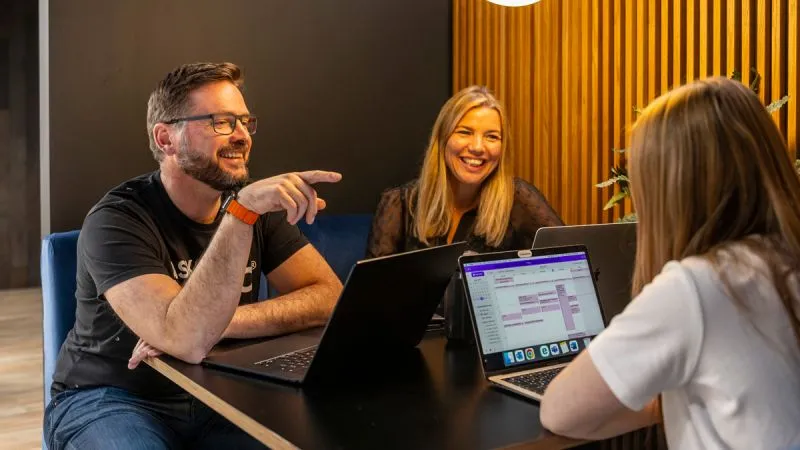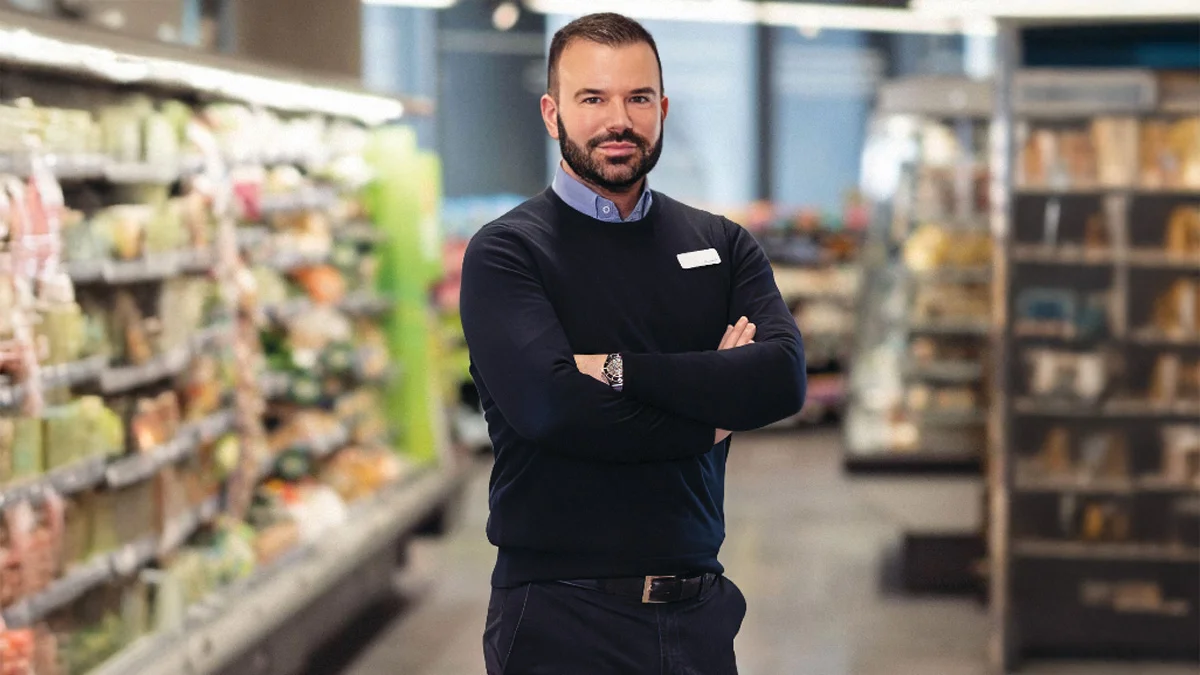
Fears of recessions and threats of burst housing bubbles have yet to come to fruition. Business confidence is better than expected following intermittent stretches of uncertainty, and owing to high levels of market unpredictability, both firms and consumers have become accustomed to a fluctuating environment. This increased corporate and consumer resilience is a welcomed side effect, preparing businesses and individuals alike for the inevitable tough times ahead.
Challenging times
In June 2023, nearly three in five (58%) trading businesses reported that they were able to get the materials, goods, or services they needed from within the UK without experiencing any issues, according to the Office for National Statistics (ONS). The remaining 42% – a problematically high percentage – highlight the difficulties in this area. Additionally, many businesses are struggling to fill vacancies amid such fierce competition for labour and skills.
Iain Black, partner at Monahans, outlines the obstacles currently facing many organisations: “It is not the easiest time for clients in the manufacturing and engineering sector; it’s a tough sector for many at the moment. For example, with concerns around basic things like raw material and component costs which have both been on a steady upward trend for the last eighteen months and show little sign of abating.
“Many businesses also have wage inflation circling, combined with a shortage of skilled staff, making it hard to stay afloat,” he adds.
However, all is not lost.
Small improvements
Numerous factors contribute to business confidence, ensuring that the UK can stand strong and weather the storm. Chancellor, Jeremy Hunt acknowledged that the UK is in a ‘low growth trap’ after the Bank of England raised its lending rate recently. He promises that his autumn financial statement will serve as the foundation for bringing the UK into a more buoyant state. The hopefulness doesn’t end there.
The latest ONS results show that while business conditions continue to remain challenging, there are some signs of improvement. While over two-thirds (67%) of businesses reported some form of concern for their business, this is the lowest percentage reported since late February 2022. Small improvements perhaps, but improvements all the same. In June 2023, 7% of businesses with 10 or more employees experienced global supply chain disruption, down 3 percentage points from May 2023, according to the ONS.
Particularly, Britain’s manufacturers growing more positively over the latest quarter. The most recent data shows that the UK market for new cars increased by about 30% in July. So far, it has grown continuously for a full year despite a difficult economic backdrop. The number of newly registered vehicles increased by 28.3% to 143,921 in the seventh month of the year, according to the Society of Motor Manufacturers and Traders.
Gustav Westman, CEO at BrightBid, thinks the UK’s increasing global and local investment is a key contributor to this glimmer of hope, signalling confidence not just in the economy, but also potential for the many startups gathering in the area.
“With the significant investment proposed to turn Cambridge into a tech hub and companies including OpenAI and Salesforce investing in the UK, the country is already doing a good job attracting the best and brightest in tech, especially when it comes to AI,” he says.
Looking to AI
Technology to some degree, levelled the playing field and changed the relationship between businesses and consumers. According to Ben Travers, an AI professional and Intellectual Property Lawyer at Knights, now is the time for positive disruptors to be brave.
Smaller businesses may not have the brand recognition of their established competitors, but they are perceived as being able to adapt quicker, to be better able to embrace exciting and disruptive technologies. Any emerging technology creates chances for disruption, but few create opportunities as significant as those offered by AI.
“AI is creating opportunities to create streamlined, personalised, premium services which can be delivered quickly and at a distance – this seems to be what both businesses and consumers are hungry for,” he adds.
Simon Harris, CEO of Avrenim, highlights the use of new technologies has boosted confidence across a variety of sectors in the UK.
“Here in the North West, it is the objective to become a hub for technological advancements and job creation by fostering innovation and knowledge sharing between the business community to ultimately drive economic confidence and prosperity,” he says.
More to do
There is still room for improvement. Westman points out that for investments to deliver on their potential, the infrastructure and support networks need to be in place.
“Only in the last few weeks, we found out that the UK could possibly be falling behind on the 5G network rollout. These fifth-generation mobile phone networks are crucial for supporting the UK’s ambitions to foster a safe, profitable growth arena for tech companies of all sizes and creating new Silicon Valleys across the country,” he warns.
Ekaterina Almasque, general partner at OpenOcean, also offers reasons for caution: “AI may be dominant right now, but investors must recognise the importance of looking ahead and not solely relying on the AI boom, as areas of opportunity still lie beyond this domain.
“A cautious approach and measured due diligence process will mitigate potential risks and safeguard VCs from getting caught in another investment bubble,” she advises.
Increasing confidence
Travers thinks that it is crucial that businesses put consumer trust at the heart of everything they do, especially when embracing powerful new technologies.
“Business leaders should be asking themselves not just what emerging technology can be used for, but also where the boundaries are for how they should be used. Consumers will want to see that businesses are acting responsibly. For example, with the use of personal data and that they are being treated fairly when products are advertised to them,” he says.
To continue to increase in confidence the UK can’t just focus on internal investment.
“We have to extend technological and creative collaboration beyond the UK to support sustainable trade for the solutions we create and encourage future inbound investment from a network of established and blossoming hubs,” advises Gustav.
Harris reveals that if this confidence continues, then the number of investment opportunities generated by economic stability and attracting both domestic and international investment to the North West is hugely significant.
“Confidence in the markets from businesses across the region makes it attractive to potential employees who want to enhance existing skills or learn new ones to support a diversifying economy,” he adds.
Consumer expectations
Travers advises focusing on long-term reputation will help businesses to thrive: “Consumers have more choice than ever when making purchasing decisions, living up to and exceeding consumer expectations will help businesses to stand out in the current climate.”
Consumer spending has also strengthened as online consumer spending bounces back in June and July, as the digital economy sees its first year-on-year growth for 17 months, according to an Adobe report. UK consumers spent a total of £18.6bn across June and July, representing 1.6% YoY growth when compared with the same period in 2022.
Improve into 2024
It needn’t be all doom and gloom. However, according to Black, it simply means businesses have to be savvier and understand how the changes are affecting them.
“Cashflow, for example, is crucial; knowing what’s coming into your business versus outgoings helps maintain a steady balance sheet and can ease some of the pressures faced by business owners,” he advises.
What can businesses do, not just to survive, but to actively encourage growth going forward? Westman draws attention to the ongoing investment in new technologies, including AI, which must also cover education and training.
“If we want to drive further innovation in this space and, crucially, have a workforce that is capable of supporting this drive, we have to upskill workers in key areas and set out plans for development in the long run,” he advises.
According to Travers, it is no longer enough to just have the best product on the market, adding an element of positive disruption whilst making ethical decisions about how technology is used (whether that’s targeted ads or the sale of virtual in-game goods and everything in-between), is crucial to provide long-term confidence.
Almasque sums it perfectly, concluding: “By investing in the building blocks, we can lay a strong foundation for sustainable growth and unlock the full potential of innovative ventures in the European market.”
Related and recommended
Contestants from The Apprentice reveal the fundamental business lessons they learned from taking part in the TV show
From global talent pools to AI-powered documentation, a work-from-anywhere model is a new way of thinking about productivity, innovation and teamwork
The story of how cycling brought Business Leader member John Readman together with his co-founder and investors
Stuart Machin’s hands-on leadership has revived M&S, tripling its share price and reshaping its future, by obsessing over the details, from shop floors to staff message boards





